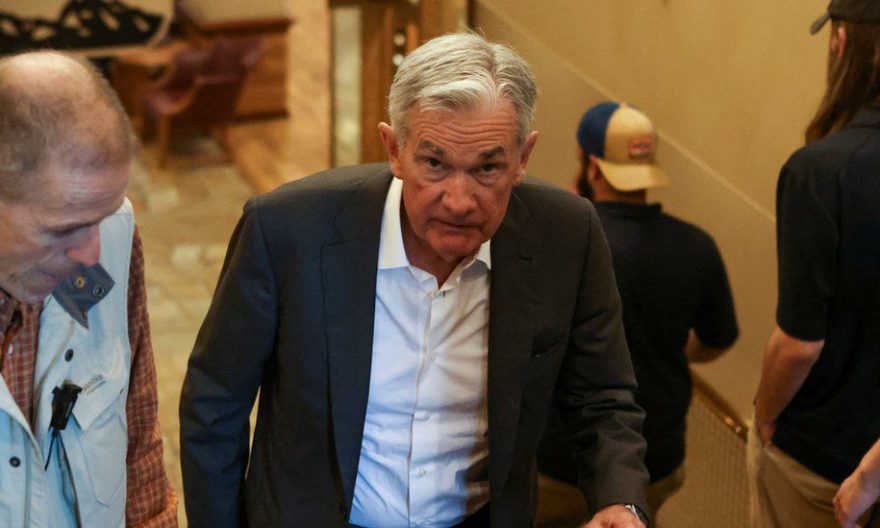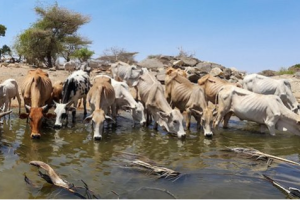
Russia has blocked the adoption of a joint declaration by a United Nations conference on nuclear disarmament.
The Nuclear Non-Proliferation Treaty, which is reviewed by its 191 signatories every five years, aims to prevent the spread of nuclear weapons.
Russia objected to a draft text citing “grave concern” over military activities around Ukraine’s nuclear plants, in particular Zaporizhzhia.
Participants in the last review in 2015 also failed to reach an agreement.
The 2022 meeting, which had been due in 2020, was delayed because of the Covid-19 pandemic. The failure to agree a joint declaration followed a four-week conference in New York.
The Australian foreign minister, Penny Wong, said she was “deeply disappointed” at the lack of agreement.
“Russia obstructed progress by refusing to compromise on proposed text accepted by all other states,” she said.
The US representative, Ambassador Bonnie Jenkins, said the US “deeply regrets this outcome, and even more so on Russia’s actions that led us here today”.
Russia was opposed to a section of the text expressing “grave concern” over military activities around Ukrainian power plants – including the Zaporizhzhia nuclear plant, which Russia seized early on in the war in Ukraine.
The draft section also remarked on “the loss of control by the competent Ukrainian authorities over such locations as a result of those military activities, and their profound negative impact on safety”.
Russia’s representative, Igor Vishnevetsky, said the draft final text lacked “balance”.
“Our delegation has one key objection on some paragraphs which are blatantly political in nature,” he said – adding that other countries also disagreed with the text.
The final document needed approval of all countries at the conference. A number of countries, including the Netherlands and China, expressed disappointment that no consensus had been reached.
The Dutch said they were “content with the useful discussions”, but “very disappointed that we have not reached consensus”.
Chinn’s ambassador, meanwhile, said despite the lack of agreement, the process was “an important practice of common security and genuine multilateralism”.
The Non-Proliferation Treaty, backed by 190 countries in 1970, commits countries which signed up – including the US, Russia, France the UK and China – to reducing their stockpiles and bars others from acquiring nuclear weapons.
Jerome Powell: US stock markets down after interest rate warning
Stock markets in the US ended the week sharply down following tough comments by the head of the country’s central bank, the Federal Reserve.
The bank’s chairman, Jerome Powell, said the bank must continue to raise interest rates to stop inflation from becoming a permanent aspect of the US economy.
His words sent US stocks into a tailspin, with markets tumbling 3%.
It comes as Americans are having to pay more for basic goods.
Inflation in the world’s largest economy is at a four-decade high.
During a highly anticipated speech at a conference in Wyoming on Friday, Mr Powell said the Federal Reserve would probably impose further interest rate hikes in the coming months and could keep them high “for some time”.
“Reducing inflation is likely to require a sustained period of below-trend growth,” he said at the meeting in Jackson Hole.
Investors are concerned that if economic growth falters, higher interest rates will increase the likelihood of a recession.
Mr Powell conceded that getting inflation under control would come at a cost to American households and businesses but he argued it was a price worth paying.
“While higher interest rates, slower growth and softer labour market conditions will bring down inflation, they will also bring some pain to household and businesses,” he said.
“These are unfortunate costs of reducing inflation but a failure to restore price stability would mean far greater pain.”
Mr Powell wants to avoid inflation becoming entrenched. Simply put, that means if people believe inflation will be high, they will alter their behaviour accordingly, making it a self-fulfilling prophecy. For example, someone who thinks prices will go up 3% next year is more likely to seek a 3% rise in wages.
The last time this happened, Mr Powell’s predecessor, Paul Volcker, had to slam on the brakes, raising interest rates dramatically and sending the economy into recession.
In March, the Federal Reserve’s key interest rate was almost zero; it has since been raised to a range of 2.25% to 2.5% in an effort to tackle inflation.
5-year-old boy dies after he’s found in hot car outside Texas elementary school
A 5-year-old boy died after he was found in a hot car outside a South Texas elementary school, officials said.
A 911 call came in at 4:04 p.m. Thursday reporting that an unresponsive boy was found inside a car parked at Dr. Americo Paredes Elementary, La Joya Independent School District Police Chief Raul Gonzalez said at a news conference Friday.
The temperature climbed to 101 degrees in Hidalgo County on Thursday, with a heat index — what temperature it feels like with humidity — of 105 degrees.
The little boy was a relative of a campus staff member, Gonzalez said. The boy, whose name was not released, was also a student in the district, according to La Joya Independent School District Superintendent Dr. Gisela Saenz.
“I want to assure parents and our community that our schools are safe. This was an isolated incident,” Saenz said at the news conference. “We’re providing support to our students and staff with additional counseling services.”
His death came on the elementary school’s ninth day of the New Year. This marks the 19th child to die from a hot car in the U.S. so far this year, according to national nonprofit KidsAndCars.org.
More than 1,000 kids have died in hot cars since 1990, the organization said. Source: BBC
THE ETHIOPIAN HERALD SUNDAY EDITION 28 AUGUST 2022




